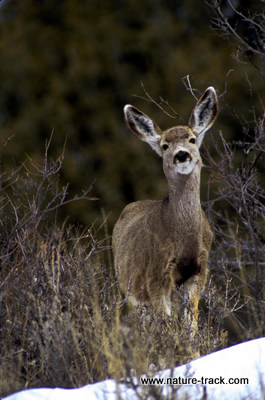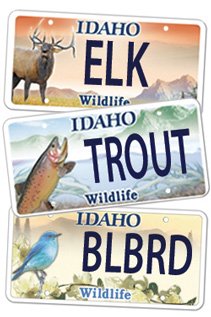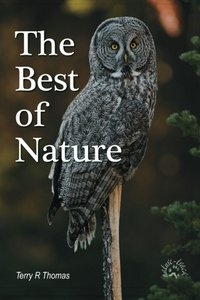Taxation for Nature

Winter range, water quality, viewsheds and recreational opportunity all benefited when citizens of Boise decided to tax themselves to protect these resources.
“And it came to pass in those days, that there went out a decree from Caesar Augustus, that all the world should be taxed….And all went to be taxed, every one into his own city. And Joseph also went up from Galilee…unto the city of David, which is called Bethlehem…to be taxed with Mary, his espoused wife, being great with child.” St. Luke 2:1-5 King James Version Bible.
It is interesting that the Christmas story begins with taxation. It does truly seem like we cannot escape death or taxes. Taxes have been a vexation nearly from the dawn of humanity, and the cause of significant civil strife, including our own struggle for liberty from British rule. Yet, they are the impetus for the beginning of the greatest story ever told.
Taxes are seen as levies imposed upon us where we have little say. So, here is a question; if we tax ourselves in order to get something we want or to maintain a certain quality of life, is that a tax? Could there be such a thing as a good tax or is that an oxymoron, like deeply superficial or business ethics?
As it turns out, we tax ourselves all the time for things that we determine beneficial. For instance, in the school district where I live, voters recently approved a large bond that will raise property taxes in order to build a new and needed high school. Granted, it took three tries to finally get above the supermajority vote, but that is another story.
Over ten years ago, the city of Boise, Idaho was concerned about the rapid development of the foothills north and east of the city. Subdivisions were popping up like mushrooms and were changing the view, the watershed qualities, and recreational opportunities and gobbling up mule deer winter range. Citizens voted to approve a levy that would raise enough money to help preserve the landscape as it was. Boise City website proclaims, “Boise voters raised $10 million dollars for conservation and land protection in the Boise Foothills. Since then, over 10,750 acres have been set aside for wildlife habitat, to promote clean water, and to provide ample recreational opportunities.”
That has made a huge difference in the quality of life in Boise. A study measuring the benefits of open space conservation shows the Boise Foothills generated $11.9 million in ecosystem services, direct use, health values and social cohesion in 2011 alone. This past November, as the levy reached its sunset, Boise citizens enthusiastically voted to re-instate this self-imposed tax.
This really isn’t a new concept. Blaine County Idaho‘s tax is called, the Water, Wildlife and Land Levy. Colorado runs a lottery (lotteries are regarded as voluntary taxes by many people) called GOCO (Go Colorado!) which uses the proceeds to fund open space, wildlife habitat and parks and recreation. Minnesota, Missouri, Dade County, Florida, New York City and many more also voluntarily tax themselves to fund conservation.
What an awesome Christmas present we could give ourselves if we insisted that our state and local governments provide a mechanism where everyone can contribute to maintaining our outdoor heritage.

Wildlife License Plates
Great news! as of 2024, there are three NEW designs for license plates. They still are bluebird, cutthroat trout and elk, but they are beautiful.
Idaho Wildlife license plates provide essential funding that benefits the great diversity of native plants and wildlife that are not hunted, fished or trapped—over 10,000 species or 98% of Idaho’s species diversity. Game species that share the same habitats (such as elk, deer, antelope, sage-grouse, salmon, trout) also benefit from these specialty plates.
No state tax dollars are provided for wildlife diversity, conservation education and recreation programs. Neither are any revenues from the sale of hunting or fishing licenses spent on nongame species. Instead, these species depend on direct donations, federal grants, fundraising initiatives—and the Idaho Wildlife license plates.
Both my vehicles have Bluebird Plates. I prefer the bluebird because the nongame program gets 70 percent of the money from bluebird plates, but only 60 percent of the money from elk and trout plates - 10 percent of the money from elk plates supports wildlife disease monitoring and testing programs (to benefit the livestock industry) and 10 percent from cutthroat plates supports non-motorized boat access.
Incidentally, in 2014, the Idaho Legislature denied the Department of Fish and Game the ability to add new plates or even to change the name of the elk and cutthroat plates (very specific) to wildlife and fish plates, a move that would have allowed for changing images occasionally and generating more revenue. It would seem that they believe that we Idahoans don't want a well funded wildlife program.
I think it is time we let the Legislature know that Idahoan support wildlife funding and that we would like to see these generic plates come to fruition.

"WOW. What a phenomenal piece you wrote. You are amazing." Jennifer Jackson
That is embarrassing, but actually a fairly typical response to my nature essays. Since The Best of Nature is created from the very best of 16 years of these nature essays published weekly in the Idaho Falls Post Register (online readership 70,000), it is a fine read. It covers a wide variety of topics including humorous glimpses of nature, philosophy, natural history, and conservation. Readers praise the style, breadth of subject matter and my ability to communicate complex and emotional topics in a relaxed and understandable manner.
Everyone can find something to love in this book. From teenagers to octogenarians, from the coffee shop to the school room, these nature essays are widely read and enjoyed.
Some of the essays here are my personal favorites, others seemed to strike a chord with readers. Most have an important message or lesson that will resonate with you. They are written with a goal to simultaneously entertain and educate about the wonderful workings of nature. Some will make you laugh out loud and others will bring a tear to the eye and warm your heart.
Readers Write:
"You hit a home run with your article on, Big Questions in Nature. It should be required reading for everyone who has lost touch with nature...great job!" Joe Chapman
"We enjoyed your column, Bloom Where Planted. Some of the best writing yet. The Post Register is fortunate to have your weekly columns." Lou Griffin.
To read more and to order a copy, click here or get the Kindle version
Copies are also available at:
Post Register
Island Park Builders Supply (upstairs)
Barnes and Noble in Idaho Falls
Harriman State Park, Island Park
Museum of Idaho
Valley Books, Jackson Wyoming
Avocet Corner Bookstore, Bear River National Wildlife Refuge, Brigham City, Utah
Craters of the Moon National Monument Bookstore, Arco, Idaho
Wildlife License Plates
Great news! as of 2024, there are three NEW designs for license plates. They still are bluebird, cutthroat trout and elk, but they are beautiful.
Idaho Wildlife license plates provide essential funding that benefits the great diversity of native plants and wildlife that are not hunted, fished or trapped—over 10,000 species or 98% of Idaho’s species diversity. Game species that share the same habitats (such as elk, deer, antelope, sage-grouse, salmon, trout) also benefit from these specialty plates.
No state tax dollars are provided for wildlife diversity, conservation education and recreation programs. Neither are any revenues from the sale of hunting or fishing licenses spent on nongame species. Instead, these species depend on direct donations, federal grants, fundraising initiatives—and the Idaho Wildlife license plates.
Both my vehicles have Bluebird Plates. I prefer the bluebird because the nongame program gets 70 percent of the money from bluebird plates, but only 60 percent of the money from elk and trout plates - 10 percent of the money from elk plates supports wildlife disease monitoring and testing programs (to benefit the livestock industry) and 10 percent from cutthroat plates supports non-motorized boat access.
Incidentally, in 2014, the Idaho Legislature denied the Department of Fish and Game the ability to add new plates or even to change the name of the elk and cutthroat plates (very specific) to wildlife and fish plates, a move that would have allowed for changing images occasionally and generating more revenue. It would seem that they believe that we Idahoans don't want a well funded wildlife program.
I think it is time we let the Legislature know that Idahoan support wildlife funding and that we would like to see these generic plates come to fruition.